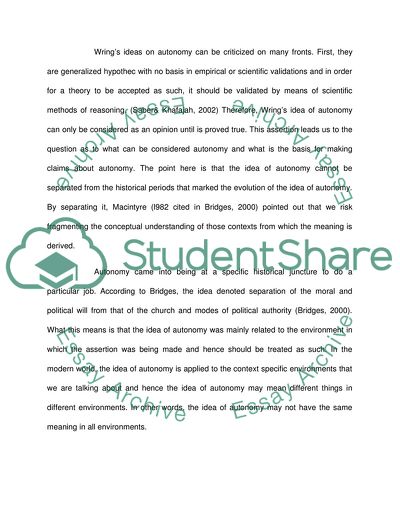Cite this document
(Everyone Needs a Balance between Individual Autonomy and Groupthink Essay, n.d.)
Everyone Needs a Balance between Individual Autonomy and Groupthink Essay. Retrieved from https://studentshare.org/philosophy/1736513-a-critical-essay-of-3000-word-requiring-more-sophisticated-independent-thinking-and-argument
Everyone Needs a Balance between Individual Autonomy and Groupthink Essay. Retrieved from https://studentshare.org/philosophy/1736513-a-critical-essay-of-3000-word-requiring-more-sophisticated-independent-thinking-and-argument
(Everyone Needs a Balance Between Individual Autonomy and Groupthink Essay)
Everyone Needs a Balance Between Individual Autonomy and Groupthink Essay. https://studentshare.org/philosophy/1736513-a-critical-essay-of-3000-word-requiring-more-sophisticated-independent-thinking-and-argument.
Everyone Needs a Balance Between Individual Autonomy and Groupthink Essay. https://studentshare.org/philosophy/1736513-a-critical-essay-of-3000-word-requiring-more-sophisticated-independent-thinking-and-argument.
“Everyone Needs a Balance Between Individual Autonomy and Groupthink Essay”, n.d. https://studentshare.org/philosophy/1736513-a-critical-essay-of-3000-word-requiring-more-sophisticated-independent-thinking-and-argument.


